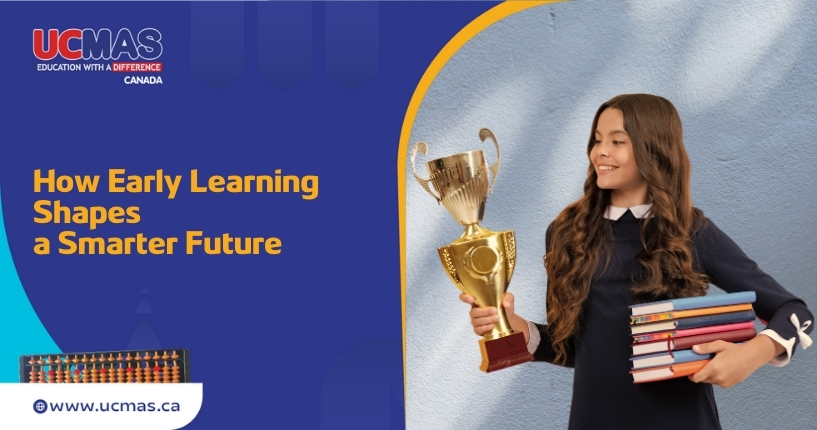
Scientifically, the early years are critical for brain development. During this time, a child’s brain is highly plastic, meaning it absorbs information and forms neural connections at an astonishing rate. When children engage in stimulating educational activities, they acquire knowledge and strengthen cognitive abilities such as problem-solving, critical thinking, and adaptability—skills vital for lifelong learning and success.
Research shows that high-quality early learning experiences enhance memory, language, and emotional intelligence. These experiences shape the brain’s architecture, forming stronger neural pathways that promote more effective learning throughout life.
Cultivating Curiosity
One of the most valuable traits we can nurture in children is curiosity. Early learning programs, especially those focused on STEM subjects, ignite this innate desire to explore and understand the world around us.
UCMAS is at the forefront of this educational revolution, offering children the opportunity to engage with cutting-edge technology from a young age. By introducing complex concepts in a fun, accessible way, UCMAS nurtures the kind of curiosity that leads to groundbreaking innovations later in life.
Building Blocks of Cognitive Development
Early learning is not just about acquiring knowledge, it’s about developing the cognitive tools to process and apply that knowledge effectively. Programs that focus on mental math and utilize tools like the abacus are particularly effective in this regard.
By searching for “abacus classes near me,” parents can find resources that help children develop strong numerical literacy and mental calculation skills. These skills form the basis for more advanced mathematical thinking and problem-solving abilities. Understanding how students learn is key to discovering the most effective learning techniques. Read more about how learning styles can transform the grades of your child.
The Social-Emotional Advantage
While cognitive skills are crucial, early learning also plays a vital role in developing social and emotional intelligence. Afterschool programs for children like UCMAS abacus program provide a structured environment where children can interact with peers, learn to collaborate and develop crucial interpersonal skills.
These social-emotional skills are increasingly recognized as key predictors of success in both personal and professional life. By engaging in group activities, children learn empathy, communication, and conflict resolution – skills that will serve them well throughout their lives.
Bridging the Achievement Gap
Early learning can be a powerful equalizer, helping to bridge the achievement gap that often exists between children from different socioeconomic backgrounds. By providing all children with access to high-quality educational experiences from a young age, we can level the playing field and ensure that every child has the opportunity to reach their full potential.
Programs like the UCMAS, an abacus-based mental math program are particularly effective in this regard, as they introduce children to advanced tools like abacus, and concepts like mental maths that they might not otherwise encounter until much later in their academic careers if at all.
Fostering a Growth Mindset
One of the most valuable lessons that early learning can impart is the development of a growth mindset. This is the idea that skills and intelligence grow with effort, learning, and persistence. By engaging in challenging activities from a young age, children learn that struggle is a natural part of the learning process.Mental math and abacus classes are excellent for fostering this mindset. As children tackle increasingly complex calculations, they develop resilience and learn to embrace challenges rather than shy away from them.
Enhancing Creativity and Innovation
Contrary to popular belief, subjects like math are not at odds with creativity they can enhance it. Early learning programs that combine STEM subjects with creative problem-solving help children develop a unique blend of analytical and creative thinking skills.
Building Lifelong Learning Habits
One of the most valuable outcomes of early learning is the development of a love for learning itself. When children are exposed to engaging, challenging, and rewarding educational experiences from a young age, they’re more likely to develop a positive attitude toward learning that can last a lifetime.
Discover how UCMAS transformed a student’s learning journey, enhancing their ability to grasp complex concepts and sharpen their mental skills.
Early learning is not just about preparing children for school; it’s about preparing them for life. By providing children with rich, diverse learning experiences from a young age, UCMAS is equipping children with the tools they need to thrive in an ever-changing world. Whether it’s through programs like mental math classes, or other specialized afterschool programs, early learning sets the stage for a lifetime of success, innovation, and personal fulfillment.





